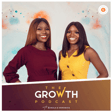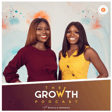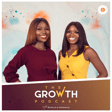
AMAZON Director by Day, DJ by Night: How Georgia Built Her Dream Career by Betting on Herself
In this episode, Bukola chats with the versatile, Georgia Akwudike. Georgia is a Director of Operations at Amazon, United Kingdom by day and a DJ by night. In this episode they talk about taking a chance on yourself notwithstanding the odds that may be stacked up against you, the power of mentorship and support and the 3 C's of excellence. They also talk about Georgia's amazing DJ career and Raising Giants (her initiative for building up young women).
You already know that this episode is going to be powerful so sit back and let's dive in.
------------------------------------------------------------------
We now have the visual version of our episodes available on YouTube. You can watch it HERE
------------------------------------------------------------------
Remember to use #TheGrowthPodcast on Twitter, Tag @growdiance on Threads, or post on your IG Story and tag us to share what you resonated with on this episode.
------------------------------------------------------------------
Follow Georgia on Instagram and LinkedIn
------------------------------------------------------------------
Check out the new website layout - Growdiance
Join our mailing list to stay up to date on everything Growdiance - Join us
------------------------------------------------------------------
Follow Bukola on LinkedIn, Twitter and Instagram
Follow Veronica on LinkedIn Twitter and Instagram
Follow Growdiance on LinkedIn, Twitter and Instagram
------------------------------------------------------------------
Remember to leave us a 5-star ⭐️ rating.


